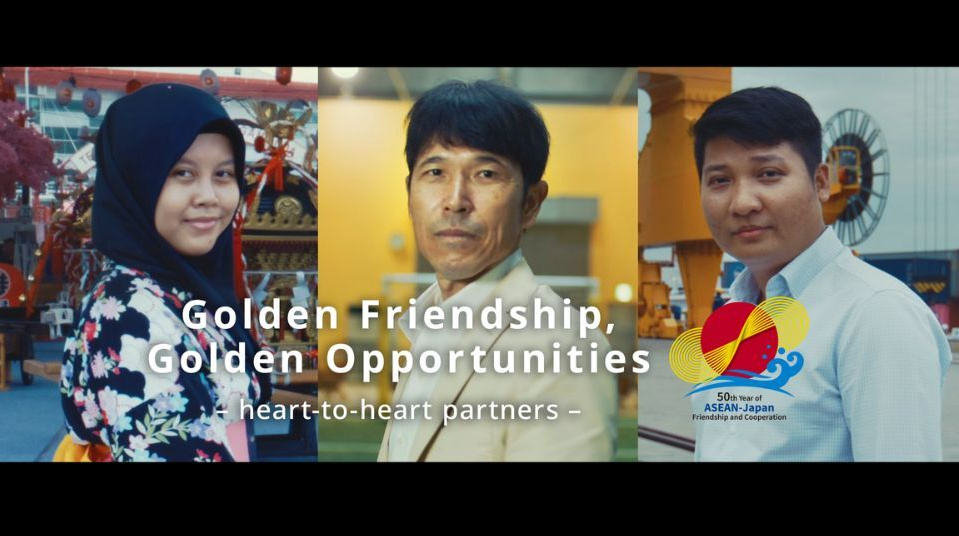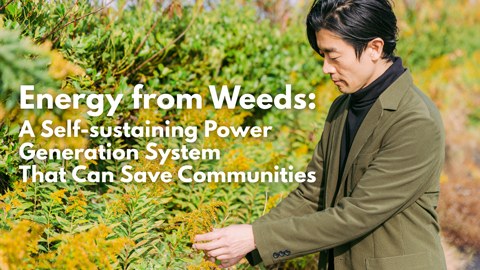Japan has long conducted people-to-people exchange programs in a wide range of fields, including culture and sport, and has been strengthening its close cooperation with member states of ASEAN (the Association of Southeast Asian Nations) for the development and prosperity of the Asia-Pacific region. Promoting mutual understanding will pave the way to a new level of partnership between these countries.

An international U-18 friendship match dubbed JapaFunCup was held at Fukushima’s J-Village Stadium. Victory went to the Southeast Asian team coached by KOGA Takuma. JFA
Over the 50 years since ASEAN-Japan relations started in 1973, the two parties have deepened their ties of friendship not only in the political and economic spheres, but also in the fields of culture, arts and sports through people-to-people exchanges. The “WA Project”: Toward Interactive Asia through “Fusion and Harmony,” announced at the ASEAN-Japan Commemorative Summit Meeting in Tokyo in 2013, is part of that endeavor. The Japan Foundation Asia Center, set up for this project, has been implementing two main programs. One is Nihongo Partners, which dispatches Japanese language assistants throughout Asia to support local Japanese-language teachers, and the other is Arts and Cultural Exchange, which conducts artistic and cultural exchanges. One initiative of the latter is Asian Eleven, a sports exchange carried out in coordination with the Japan Football Association (JFA) and the Japan Professional Football League, which dispatches coaches and players to ASEAN nations to share their knowledge and experience of football in Japan. The goal of the program is for the people of Japan and the countries of ASEAN to foster relationships as friendly rivals through football, and to take Asian football overall to a higher level.
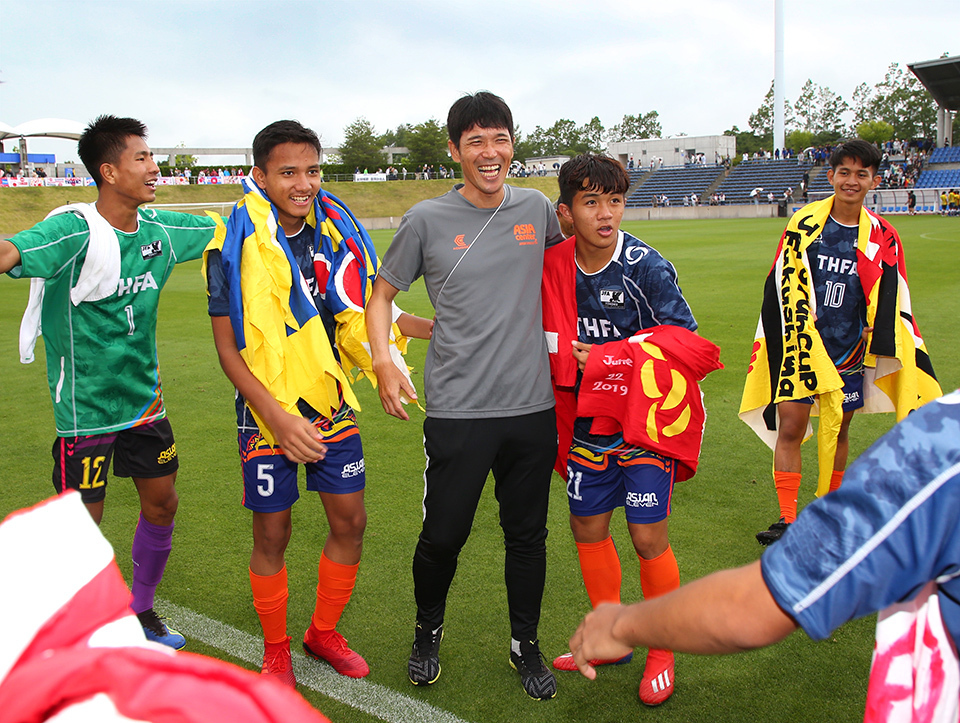
Koga (center) was head coach for two and a half years at an academy for young athletes in Myanmar. The photo was taken at the JapaFunCup. JFA/AFLO
Starting from October 2017, former Japanese pro football player KOGA Takuma spent roughly two and a half years as a head coach at the Myanmar Football Academy in Mandalay, where he trained young players of the next generation. “Myanmar has some very highly skilled individual players, and I see potential there for a big leap forward. They responded to my coaching by playing more and more proactively, which I found very gratifying,” Koga recalls.
The event that impressed Koga the most took place in 2019, when he served as head coach for a select team of players under 18, chosen from 11 Southeast Asian countries, who were brought to Japan to play a friendly match with a team selected from the prefectures of Japan’s Tohoku region. “It’s great if we succeeded in passing along some of our energy to the people of Tohoku, who were working really hard to reconstruct after the Great East Japan Earthquake of March 2011,” Koga said. The game was a close battle that ended with a penalty shootout victory for the Asian Eleven team.
The Japanese government also conducts a program called JENESYS (Japan-East Asia Network of Exchange for Students and Youths) as one of Japan’s Friendship Ties Programs. The program, which started in 2007, invites young people of merit in the Asia-Pacific region to Japan and likewise sends young Japanese people to this area, the goal being to nurture future generations with a better understanding of each other. By March 2023, 36,000 young people from ASEAN nations had come to Japan and 3,000 Japanese youths had visited the countries of ASEAN, each expanding their mutual understanding.
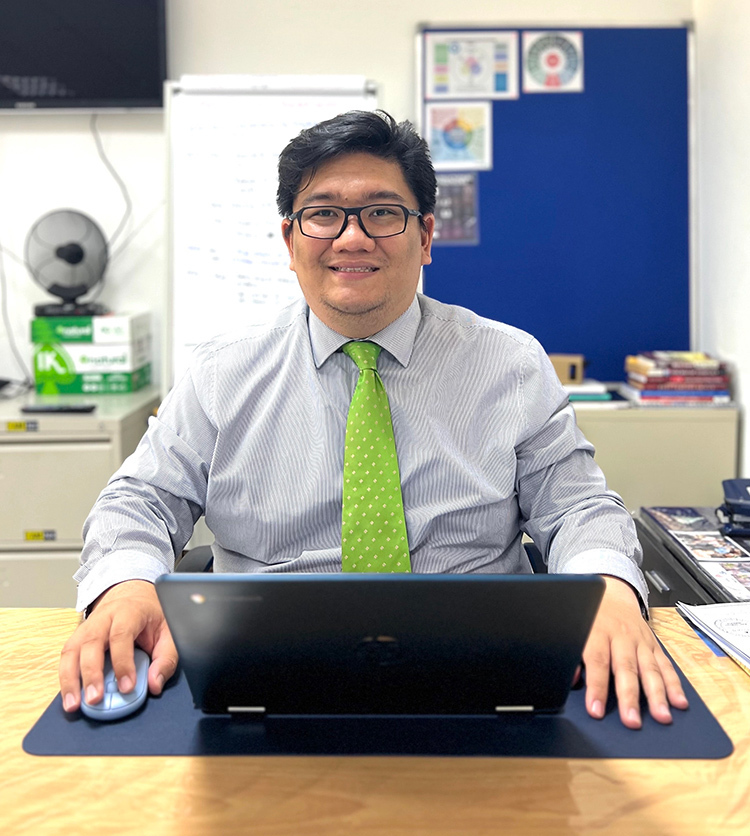
Abdul Walid bin Haji Misli today works at the EdTech Centre in Brunei. He said that he is grateful that people he interacted with in Japan became interested in his country.
Abdul Walid currently works at the EdTech Centre of Brunei’s Ministry of Education. “I really admire Japanese people’s work ethic and dedication. I determined myself to be as dedicated to my work after visiting Japan, so that I could contribute to my job more efficiently. Personally, I would love to go back to Japan and engage in a professional exchange to improve my work skills, especially in the areas of teaching and educational technology,” he adds.
Friendships, forged through interactions between the young people who hold the future in their hands, will be the foundation of a stronger partnership between Japan and the ASEAN nations.
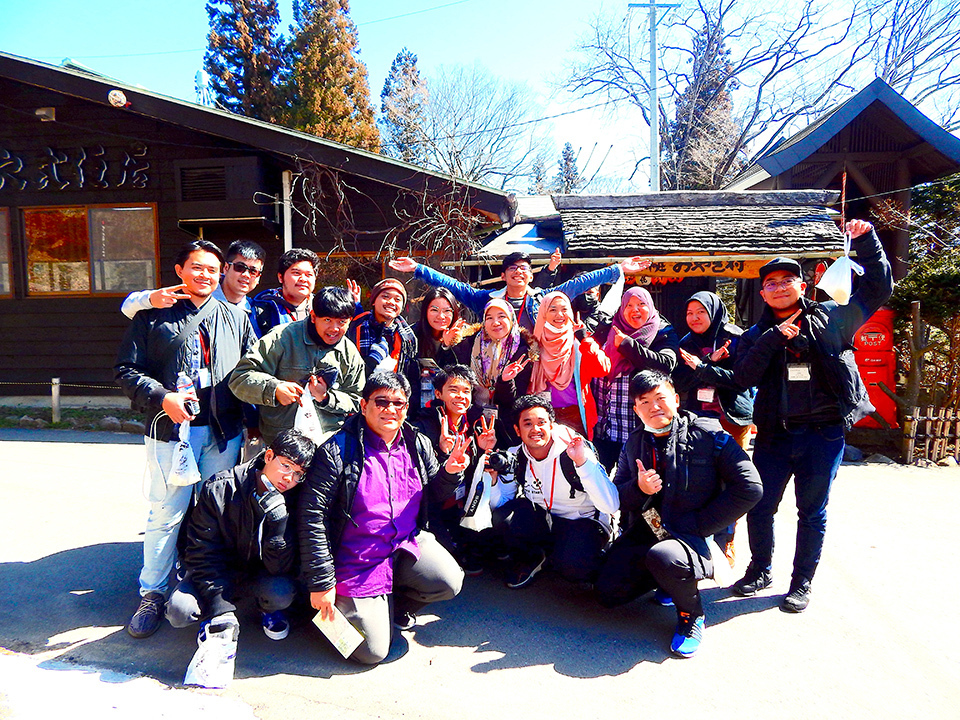
Students from Brunei who participated in the JENESYS program. The group stayed in private homes in Hakuba, Nagano Prefecture, where they learned how to make the local cuisine, and experienced the ski slopes. After returning home, they shared their experiences, and some have kept in touch with the Japanese students they befriended.


























